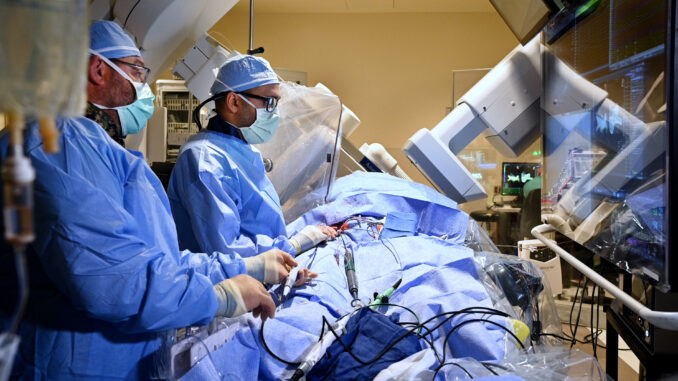
UCHealth Medical Center of the Rockies (MCR) is leading the way in treating atrial fibrillation (AFib), a common heart rhythm disorder, by becoming one of the first hospitals in the nation to offer pulsed field ablation.
Kerry Pabst, a 63-year-old man from Frederick, Colorado, was the first MCR patient to undergo the new pulsed field ablation procedure recently.
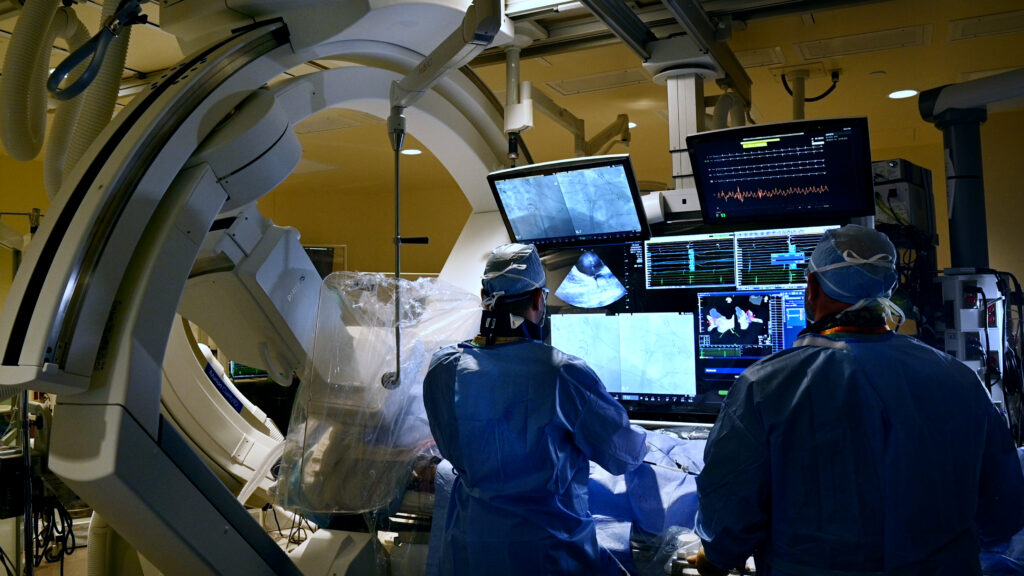
AFib is when an abnormal heartbeat causes blood to flow poorly through a person’s heart. It can lead to heart failure or blood clots that can cause stroke. It is a progressive condition that impacts up to 6.1 million Americans, and that number is on the rise. More than 12 million Americans will be impacted by 2030, according to the Centers for Disease Control and Prevention.
“It’s become an epidemic. That is why it’s very important that we find treatment solutions that are safe, effective, and efficient,” said Dr. Amar Trivedi, the UCHealth clinical cardiac electrophysiologist who performed the first procedure at MCR.
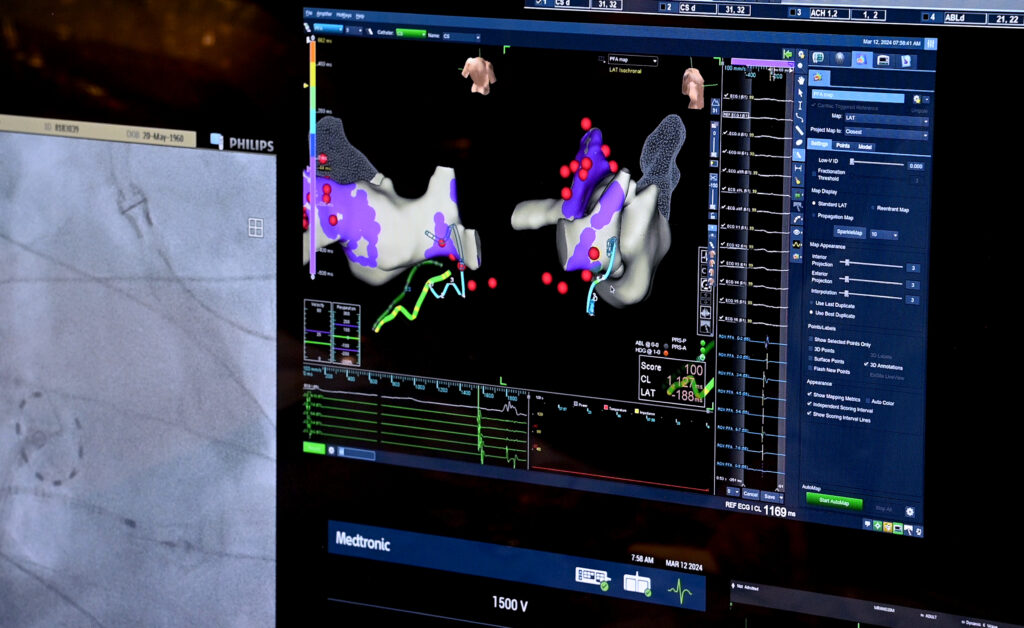
Traditional ablation procedures that have been used for more than two decades rely on thermal effects to target the cardiac tissue that triggers AFib. However, these methods carry a risk of damaging surrounding tissue in the heart. The pulsed field ablation approach uses a series of electric pulses to efficiently isolate the pulmonary veins for the treatment of AFib. Because the mechanism of cell death is non-thermal, the risk of collateral heart structure damage is potentially lower.
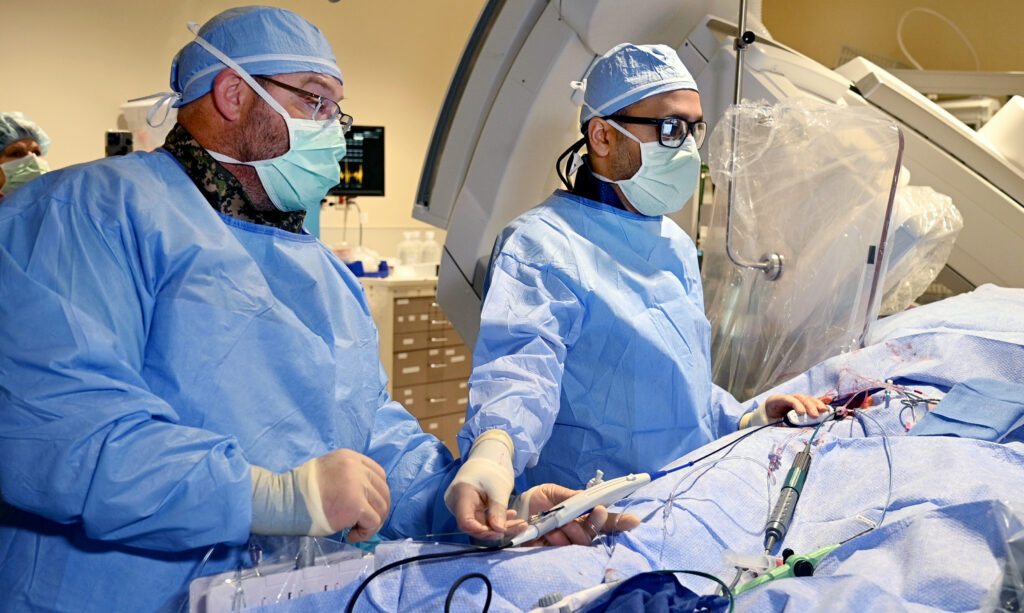
“This is an energy source that will likely become the first-line method to control AFib moving forward,” Trivedi said.
Pulsed field ablation is for anyone with symptoms of AFib. This can include irregular heartbeat, heart palpitations, lightheadedness, extreme fatigue, shortness of breath, or chest pain. Many of these patients are fatigued, run-down, tired, unable to exert themselves, and unable to play with their children or grandchildren.
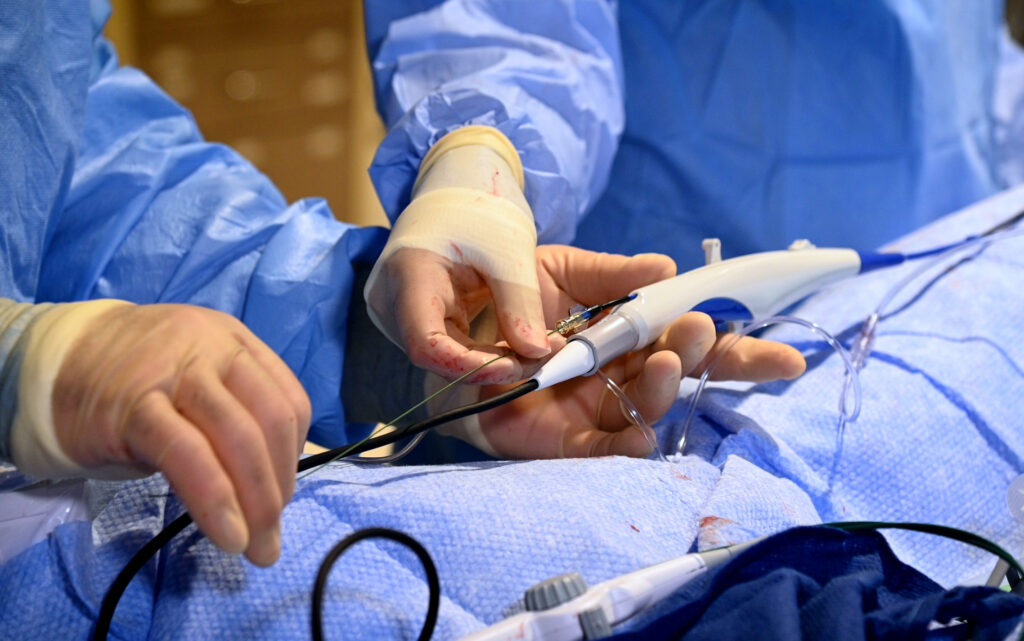
Patients start feeling better days after the procedure. “The most common thing I hear after ablation is that their heart feels calmer. That is how they describe it,” Trivedi said.
The Food and Drug Administration recently approved two pulsed field ablation systems. At MCR, the team is using the Medtronic PulseSelect Pulsed Field Ablation system, which was approved in December. MCR played a key role in evaluating the Medtronic system through participation in a clinical trial three years ago.
“This is the most anticipated new technology in the electrophysiology world in more than 10 years,” said Robert Wagner, senior director of UCHealth cardiovascular services in northern Colorado. “We are honored to bring this groundbreaking technology to Colorado to serve our patients from throughout the Rocky Mountain region.”
Support Northern Colorado Journalism
Show your support for North Forty News by helping us produce more content. It's a kind and simple gesture that will help us continue to bring more content to you.
BONUS - Donors get a link in their receipt to sign up for our once-per-week instant text messaging alert. Get your e-copy of North Forty News the moment it is released!
Click to Donate
